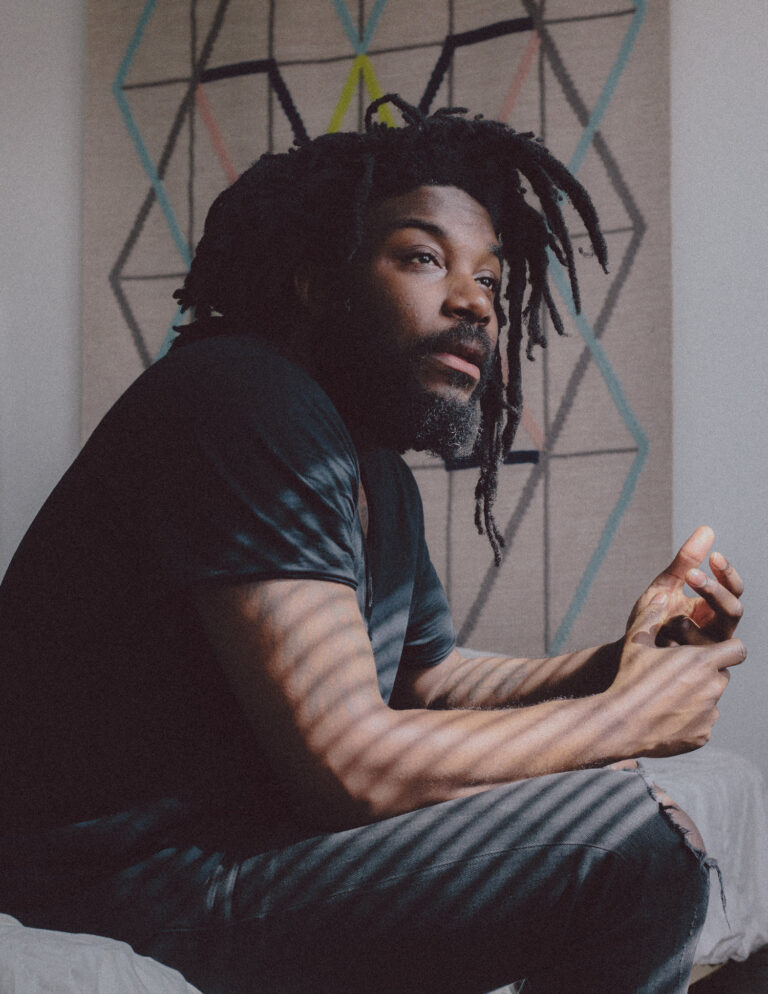Mary Catherine Bateson
Living as an Improvisational Art
Underpinning all the great challenges of our time there is the human drama, the human condition. And as we move beyond 2020, we turn to Mary Catherine Bateson to help us understand the puzzle of being ourselves, of rising to our best capacities and gifts, in all of our complexity and strangeness. She is the daughter of the great anthropologists Margaret Mead and Gregory Bateson, and she is a linguist and anthropologist herself.
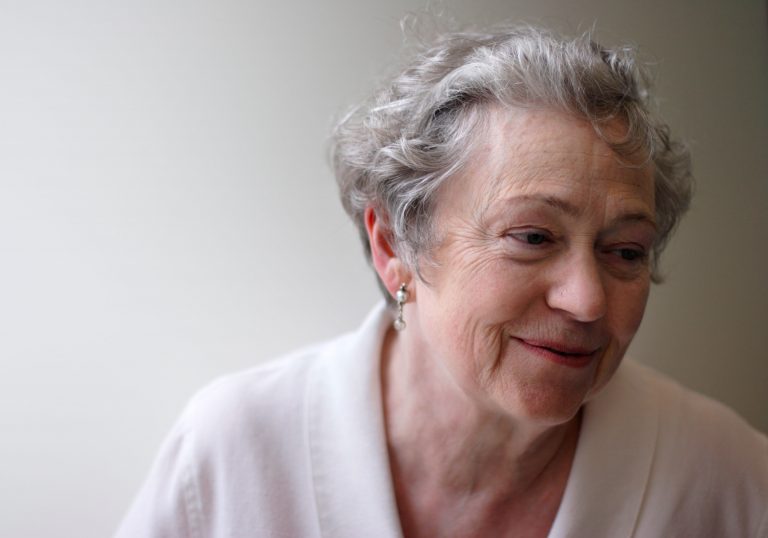
Image by Tom Starkweather/Getty Images, © All Rights Reserved.
Guest
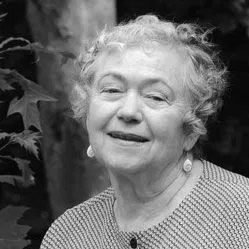
Mary Catherine Bateson was Professor Emerita at George Mason University. Her books include a memoir of her life with her parents Margaret Mead and Gregory Bateson called With a Daughter's Eye, as well as her bestselling book Composing a Life. Most recently, she was the co-author of Thinking Race: Social Myths and Biological Realities. She died on Jan. 2, 2021 in New Hampshire with her family. She was 81 years old.
Transcript
Krista Tippett, host: Underpinning all the great challenges of our time there is the human drama, the human condition. I find myself gravitating towards people who help us understand the puzzle of being ourselves, of rising to our best capacities and gifts, in all of our complexity and strangeness. Mary Catherine Bateson is the daughter of the great anthropologists Margaret Mead and Gregory Bateson, and she is a linguist and anthropologist herself. She describes living as an improvisational art. It feels at once wise and freeing to frame the challenge of living now in this way.
[music: “Seven League Boots” by Zoe Keating]
Dr. Mary Catherine Bateson: In a sense, human beings remain childlike. They’re open to new learning and even very deep learning that changes your personality, really. Right through the life cycle, human beings remain playful — and play is a very important part of learning — and experimental. Most other species, they figure out how to be a rabbit or a chicken or an owl or a fish, and that’s what they do for the rest of their life; so learning is us.
Tippett: I’m Krista Tippett, and this is On Being.
[music: “Seven League Boots” by Zoe Keating]
Mary Catherine Bateson is Professor Emerita at George Mason University. Her books include With a Daughter’s Eye, Composing a Life, and Composing a Further Life: The Age of Active Wisdom. She grew up in multi-family households in New York City and beyond. She now lives in New Hampshire with her husband in the same house they bought together as graduate students in 1963. I spoke with her in 2015.
Tippett: You know, I’ve read you across the years. I read Composing a Life, and I read With a Daughter’s Eye years and years ago and then have been really intrigued by what you’ve been writing more recently — so just by way of saying, I’m really delighted to be speaking with you.
And it’s so interesting just to look at the beginnings of your life. I mean it seems like, in some ways, your childhood was this vast anthropological experiment, beginning with breast-feeding [laughs] — which most people just can’t say about their infancy.
Dr. Bateson: [laughs] Well, it was a great advantage. I mean after all, I had the benefit of ideas that are now regarded as the better form of child raising. When I was born, middle-class women didn’t nurse babies. That would have been an animal-like thing to do. Only the very poor actually breastfed. So I was very lucky that my mother, having been in Bali and New Guinea, believed that breastfeeding was good for babies and for mothers.
Tippett: And sometimes you’re called Dr. Spock’s first baby. It seems to me, in reading about that, that your mother was educating Dr. Spock as much as he was advising her.
Dr. Bateson: Absolutely. He was young, fashionable, and being psychoanalyzed. And she figured — we’re talking 1939 — that if he was being psychoanalyzed, he must be pretty progressive, [laughs] open-minded.
Tippett: [laughs] So if I ask you to describe the spiritual background of your childhood, whatever connotations you bring to that language of spirituality, how would you start to talk about that?
Dr. Bateson: Well, I would start with the fact that the day I was born, my mother received a telegram from her husband, who had sailed to the U.K. to enlist, the war having begun in Europe and not yet — the United States wasn’t yet involved. And he sent off a cable saying, “Congratulations on Baby Catherine. Do not christen.”
Tippett: [laughs] Right. It’s very interesting — I mean it comes through in your writing, but even more in talking to you — you have such an intimate identification with your parents. But also, there’s a distance — like you even talk about yourself in the third person sometimes, as a baby, which was something about how the life that you were born into was about living and reflecting, all at the same time. I don’t know.
Dr. Bateson: I’ve tried to track down my first lesson in participant observation, actually, and written about that, because — I mean that’s what anthropologists do. They live with the people of the culture they’re studying. They eat with them. They hang out with them, ask them questions, all of those things. So they’re participants, but they’re also observing, and they’re also self-observing.
So one day, when I was probably about eight or nine, she took me in a cab. She said we were going to visit a family who had a little boy named Bobby, and the parents were worried about him, and he wasn’t behaving well in school. Now Bobby was an awful pain in the neck. I mean he hit me, and he pinched me, and he ignored me, and he wouldn’t share his toys. There was definitely a problem there.
So after a couple of hours, she fetched me from the playroom, and we went out and got a cab to head for home, and she said, “Now tell me about Bobby.” And I said — where I had learned this, I don’t know — I said, “I’m going to wait till we get home, and I will dictate to you what I think about Bobby, so that if another child ever has to play with a child like that, they’ll have a resource. They’ll have a way of knowing about it.”
Tippett: So even your play dates were anthropological experiments, with you as the anthropologist. [laughs]
Dr. Bateson: [laughs] They often were, yeah. But actually — I mean I think there’s a huge benefit in being a participant-observer. There are people who are just observers and don’t engage with others. There are people that just engage and don’t think about what’s happening. And to learn to go back and forth between — or simultaneously be learning, observing, but at the same time be fully present — was a marvelous thing to learn. And it’s a marvelous way to live, actually.
Tippett: Well, it’s certainly a ripe field for the work of becoming wise. And I think your book, Composing a Life — I mean that is a phrase that you brought into the world that’s very evocative and rich, and I think it actually follows on what we’ve just been talking about, this discipline and way of being that you imbibed, growing up, of living and reflecting. So just talk a little bit about that notion of composing a life and how that came to you and what you mean by that.
Dr. Bateson: Well, at that point I had been Dean of Faculty at Amherst College for several years, with a faculty that hadn’t gotten used to the idea of coeducation yet and was habitually antagonistic to the administration, which is not uncommon. And I was very aware, at that point in history, that women were going back to school, back into the workplace, trying for the first time to combine family life with an active career — and finding it very difficult, talking about juggling, which to me is a terribly anxiety-producing metaphor.
Tippett: Right. It’s a very — I mean you say that in your writing, and I wrote that down, because it does throw into sharp relief what a different way of approaching “composing” a life is, rather than “juggling.”
Dr. Bateson: But people would say to me, “You know, I can’t get my life together. I try different things. My husband says I’m not a serious person, because I don’t have a consistent career line. I feel like such a failure.” And what I saw was that they were working harder than their husbands and doing a pretty good job. And I was looking for a metaphor that would allow them to realize that the effort they were making to work out a new kind of woman’s role was creative, that it was an art form.
Tippett: You say, “Life as an improvisation, as an improvisatory art.”
Dr. Bateson: Exactly. Well, you know, people think improvisation means you don’t practice. But I have a cousin who is a jazz flutist, and I know that jazz musicians practice improvisation [laughs] by the hour. And improvisation is a high order of skill.
Tippett: You say, in Composing a Life — so again, this was some decades ago. This was in the latter part of the 20th century, and now we’re in the early decades of the 21st. You said, “In a stable society, composing a life is somewhat like throwing a pot or building a house in a traditional form: the materials are known, the hands move along familiar tasks, the fit of the completed whole in common life is understood.” But what you just said about the situation of women in those latter decades of the 20th century is true of everybody — just about everybody graduating from college now — that, as you said, the consistent career paths aren’t there for anyone, in that sense.
Dr. Bateson: I think that’s the case. I mean I think we now live with constant change. And so they’re onstage without a script.
Tippett: Yes, and which again, I think, just playing with this language and kind of delving into this language of composing and — here’s another piece of your writing: “I like to think of men and women as artists of their own lives, working with what comes to hand through accident or talent to compose and recompose a pattern in time that expresses who they are and what they believe in, making meaning even as they are studying and working and raising children, creating and recreating themselves.”
Dr. Bateson: You know, that metaphor was simply a gift. A bad metaphor can create chaos, literally. In Composing a Further Life, about later adulthood, I talk about what I call “active wisdom,” the concept of active wisdom, of having a period before becoming frail and multiple medical problems and so on and so forth, when you have the harvest of a life of learning and thinking and observing, and at the same time, you’re still active.
I have to tell you, it’s wisdom on the hoof. [laughs]
Tippett: [laughs] I like that. You say there’s — you talk about “Adulthood I,” the first phase of adulthood, which is what we traditionally have thought of as adulthood. But then, with these suddenly ever-longer productive lives, you talk about “Adulthood II” as a new developmental stage, which I like: “wisdom on the hoof.” [laughs]
Dr. Bateson: [laughs] I think it is. I think it is so profound a change, it really affects our status as a species. It’s something that gives me hope that we will deal with climate change. We will learn to be more careful with the ways we use the planet, because what’s been happening is, we’ve been living longer and thinking shorter. We’ve been accelerating our activities. And gosh, if we have more people that have lived into a certain degree of wisdom, maybe we’ll think twice.
[music: “Lullaby” by El Ten Eleven]
Tippett: I’m Krista Tippett, and this is On Being. Today, with the wise writer Mary Catherine Bateson. She’s an anthropologist and linguist and the daughter of the iconic 20th-century anthropologists, Margaret Mead and Gregory Bateson.
[music: “Lullaby” by El Ten Eleven]
Tippett: As you yourself have composed your life — I mean you composed your life. You did become a linguist and an anthropologist, which — I mean the field which your mother, in fact both of your parents really helped create, has radically evolved — but you are part of that field. But one thing you said about your mother, as your mother composed her life, she made her marriage and her family fit into that. And you’ve done it very differently.
Can I just ask you this? There’s this quote of your mother, of Margaret Mead, that I’ve discussed with other people, and I don’t know if it’s true, [laughs] so I can ask you now. Did she say — so both of your parents had three marriages, is that right?
Dr. Bateson: Each of them was married three times.
Tippett: Each of them was married three times. And I’ve heard that your mother said that everyone has three marriages, even if it’s to the same person. Is that true?
Dr. Bateson: I haven’t ever heard it quoted in exactly that way. I think that adding “even if it’s to the same person” does make sense. I mean marriage — I don’t know if you’ve heard this statistic, but the average duration of a marriage in the United States today is longer than it was in colonial times.
Tippett: Yeah, because people didn’t live as long, and women died in childbirth?
Dr. Bateson: Exactly. Divorce could be called a replacement for death. I mean that’s a cynical way of putting it, but the point is, we think of marriage as a relationship between two mature people, hopefully, who love each other and settle in to constancy and continuity. And in fact, those two people are growing and changing all the time. I mean just as you have to keep learning your infant from week to week, because the infant is growing and discovering things, marriage requires a constant rhythm of adaptation between two people who are changing. And much as we would like the constancy, it’s actually quite a challenge.
But I think — I mean it’s funny. One of the things that I tend to talk about a great deal is the amount of learning that takes place throughout adulthood. You don’t graduate from college, and the president of your college says, “Stand up. You are now…” The president of Harvard used to say, “You now join the company of educated men.”
Tippett: [laughs] Right.
Dr. Bateson: Well, far as I can see, they’re out of kindergarten, and they’ve got a huge amount to learn.
Tippett: There’s such a contrast between this truth you’re telling — because it is truth. It’s really common sense. I mean you’re just — you’re talking about the reality we all know. And yet, it stands in such contrast to the focus, the ambition and focus that we press on ourselves and on our children — and on children, it seems, at younger and younger ages.
Dr. Bateson: Alas, one of the things we press on them is competition, because we have so much bought into the idea that competition is a law of nature and the only source of creativity. And incidentally, that is not a true biological fact. There is competition as part of the evolutionary process, but there is a tremendous amount of cooperation also involved, even at the cellular level.
Tippett: But even evolutionary biology is — these days, is paying so much attention to cooperation. And there’s this much broader palette of science that describes us in so many other ways that you’re a part of, too.
Dr. Bateson: Co-evolution, endosymbiosis.
Tippett: What’s that?
Dr. Bateson: Well, when you were in high school, you looked through a microscope at a cell, and one of the things you learned to recognize was the nucleus of the cell, right? You made pictures of it. Well, the earliest life forms had no nucleus, and on the whole, bacteria don’t have that kind of nucleus. And a biologist named Lynn Margulis, who was a microbiologist studying single-celled creatures and their progenitors, came up with the theory that the cell with a nucleus actually came about by one single-cell organism taking up residence inside the other in a way that was mutually beneficial.
The cells in the green plants have little islands of chlorophyll in order to do photosynthesis that is the base of our entire food chain, right? And it is now understood that they were originally like algae — they took up residence inside these cells, because they needed a home that they didn’t have. And so for millions of years, every cell in every leaf is actually a cooperative enterprise.
Tippett: And one thing that’s so interesting in the vision of life that you’ve been developing is precisely that view, also, of how we compose our lives as the building blocks of that interdependence. I mean you used the word “home” just a minute ago, talking about the natural world. And homemaking is something you’ve been talking about. You tell this story in a few places, that when you first met your future husband that you were telling him about your life and your parents’ failed marriages and your sense that with these role models, you could never sustain a commitment, [laughs] and that somehow, that very evening, it ended with the two of you talking about when you would get married.
Dr. Bateson: That’s right. Indeed we did.
Tippett: Talk to me about what the word “homemaking” holds for you.
Dr. Bateson: Well, creating an environment in which learning is possible. And that is what a home is. I mean that is what we want the homes that we give to our children to be — places where they grow in many, many different ways. They learn how to connect with other people. They learn how to care for others. They learn particular skills. They learn their own capacities and how to trust other people and how to trust themselves. They learn what respect is.
Tippett: I’m very interested in the question of how social change happens, how human change happens. Somewhere, you talk about your mother’s enduring question was, “What kind of world can we build for our children?” And it seems to me that you are seeing the metaphor of homemaking as a version or a variation on that question that is potentially as profound, or perhaps more what is appropriate to this profoundly interconnected world that we inhabit now.
Dr. Bateson: One of the things that biologists have said about human beings is that we retain many of our infant characteristics throughout our lives. You’ve heard stories about the people that wanted to raise a lion in their home, people that have wanted to raise a chimp in their home; other stories of trying to tame a wild animal, and when it matures, it loses its flexibility, and the relationship breaks down. And there are typical physical changes that go with maturity, in many species, that are more dramatic than in human beings — get a lot more hair, for instance — and in a sense, human beings remain childlike. They’re open to new learning and even very deep learning that changes your personality, really.
Right through the life cycle, human beings remain playful — and play is a very important part of learning — and experimental. Most other species, they figure out how to be a rabbit or a chicken or an owl or a fish, and that’s what they do for the rest of their life. So: Learning is us.
Tippett: What was your mother’s notion of “evolutionary clusters”? What was that about?
Dr. Bateson: Well, you’ve probably seen the slogan that gets quoted all the time — “Never doubt that a small group of thoughtful, committed citizens can change the world.”
Tippett: That’s a Margaret Mead quote.
Dr. Bateson: Yeah. We’ve never been able to find it in its first iteration in print.
Tippett: [laughs] But that’s a definition of evolutionary clusters?
Dr. Bateson: Yes, and that very often major accelerations of change came out when a group of people got together and learned together and dared to think new thoughts and then pass them on. And that’s true of the disciples of Jesus, a small group that — pow! — spread out, spreading ideas that they’d learned. It was true of the American Revolution — a group of thoughtful colonists thinking, actually, about French philosophy, mainly, and deciding they wanted to be independent. And the point is that the evolutionary part of that was in the relationships between the members of those small groups, feeding off of each other’s imaginations and insights and wisdom and then spreading them out in the society, going forward.
[music: “Truth (Helios Remix)” by Balmorhea]
Tippett: After a short break, more with Mary Catherine Bateson. You can always listen again, and hear the unedited version of every show we do on the On Being podcast feed — wherever podcasts are found.
[music: “Truth (Helios Remix)” by Balmorhea]
Tippett: I’m Krista Tippett, and this is On Being. Today, with the linguist, anthropologist, and wise woman, Mary Catherine Bateson. She explores the matter of composing our lives, of life as an improvisational art at every age. Since her childhood as the daughter of the towering anthropologists Margaret Mead and Gregory Bateson, she’s had an ability to experience life both as an original observer and as a joyful participant.
Tippett: I do find echoes, but also, I find that you are improvising or working with some of the same convictions, but bringing them into a different world. I mean here’s something you wrote about your belief that “multiple small spheres of personal experience both echo and enable events shared more widely, expressions of moment in a world in which we now recognize that no microcosm is completely separate, no tide pool, no forest, no family, no nation. Indeed, the knowledge drawn from the life of some single organism or community or from the intimate experience of an individual may prove to be relevant to decisions that affect the health of a city or the peace of the world.” That’s very emboldening.
Dr. Bateson: That’s a very central quotation. Now I’m working on a book, the title of which is Love Across Difference. And central to the thinking in that book is that love depends on a recognition of something in common and the valuing of a difference.
Tippett: Right.
Dr. Bateson: You don’t want someone just like yourself. You want someone enough like yourself so that you can learn new things from them.
Tippett: I’d like to talk to you about religion. I mean it’s very interesting. Your parents had, as we’ve discussed, complicated lives and philosophies and complicated relationships with religion — I mean you describe your father’s studied English atheism — but across his lifespan, he was investigating conscious purpose, and the San Francisco Zen Center was an important place for him, and the Esalen Institute, and you read him passages that he loved from the Book of Job while he was dying. And your mother, you quote this — these lines of Kipling that I was just so taken with, Kipling’s description of heaven, which your mother loved: Heaven as a place of tireless creativity, “but each for the joy of working, and each, in his separate star.”
Dr. Bateson: “His separate star,” will paint “the Thing as he sees It for the God of Things as They are!”
Tippett: Isn’t that a wonderful line — “The God of Things as They are”?
Dr. Bateson: It is wonderful. I love it.
Tippett: And it seems to me that across your life, you were more overtly curious and moving towards religion and wanting to understand it and what its place in your life might be. I mean I’m curious about — both as a human being and as an anthropologist, how you’ve come to think of the presence of these traditions among us, what they mean for human beings and their integrity in this moment of change, because that way your father was is really the way many, many people are growing up to be now. I mean he was quite unique.
Dr. Bateson: Well, his father, who was a distinguished biologist, insisted they read the Bible to each other on a fairly regular basis, the parents and the three sons, because, his father said, he didn’t want them to be empty-minded atheists.
Tippett: Your mother said this — you cite your mother saying this very insightful, wonderful thing — that “too many people, when they reject God, go on believing in the devil,” that many intellectuals have a sense of evil without a confidence in good.
Dr. Bateson: She did indeed say that, and she said it about some specific people. [laughs] I think — what shall I say? I think I’m not happy with the division between people who say, “I’m spiritual, but not religious.” To me the starting place is the sense of wonder. And that can take you into science. It can take you into art. Other human beings are amazing and beautiful. The natural world around us — the more we study it, the more fascinating and intricate and elegant it turns out to be.
That’s my interpretation of the Book of Job, incidentally. My father used to say that Job gets over his distress by learning some natural history. But I don’t think it is a matter of — I mean God, you remember, in the Book of Job, God says, “Do you know why the rains fall here and not there, when the deer bring forth their young?” Et cetera, et cetera. It sounds like a quiz on nature studies.
Tippett: [laughs] That’s right, yeah.
Dr. Bateson: But that’s not really what it is. I think the point about the Book of Job is that Job is a virtuous member of an institution. He’s respectable. He obeys all the rules. He’s complacent. He goes through the appropriate rituals that were required in his community at that time. But he’s lost his sense of wonder. And then God says, “Look. Just look. Realize how beautiful it is, how complicated it is — the wonder of Creation.” And he wakes up.
I actually got interested in the sense of wonder because — for a series of historical reasons, I know a lot about Judaism. I lived my last year of high school in Israel. And then I came back and decided I wanted to learn about Islam, and so I studied Arabic.
Tippett: And then you spent a good amount of time in Iran, before the Revolution. You had made a home there.
Dr. Bateson: About seven years — well, six years, say. So I thought I should be doing something to address the Islamophobia, the hostility, the prejudice that has grown up in this country after 9/11. The way I went about it was to say, “What is it that makes me, as a Christian, empathize with a Muslim? At what point are we together?” And what struck me is that what — actually, all three of the religions that come from Abraham: Judaism, Christianity, and Islam — that what we all have in common is the sense of wonder that leads to praise. That is to say, when you go from wonder to a religious context, shared worship, something like that, it takes the form of praise. And in spite of the huge differences in other aspects of the traditions — a different set of rules, expectations, behaviors, ta-dum, ta-dum, ta-dum, ta-dum, ta-dum — praise is central in all of them.
[music: “Dies Irie” by Ahn Trio]
Tippett: I’m Krista Tippett, and this is On Being. Today, with the wise writer Mary Catherine Bateson. She’s an anthropologist and linguist and the daughter of the iconic 20th century anthropologists Margaret Mead and Gregory Bateson.
[music: “Dies Irie” by Ahn Trio]
Tippett: So do you feel like, even as an anthropologist, that that sense of wonder is as much what religion keeps alive for human beings as ritual?
Dr. Bateson: Yes. I think ritual is an important part of it, because ritual is constantly building. You repeat the same thing at different stages of your life, and you’re putting new layers of meaning. You’re re-recognizing the familiar.
Tippett: You wrote a beautiful, beautiful essay about your father’s death in 1980. There’s a lot of drinking sherry and eating Stilton cheese, which he loved, which feels to me like the bread and wine. I mean — right? It has that same centrality. And you talked about the various things you sent with him into the fire — a volume of Blake’s poetry and flowers and a crab because, you said, “in memory of the way he had taught each of us to study tide pools and the way he had taken a crab with him year after year to his opening classes at the San Francisco Art Institute to open his students’ eyes to the fearful symmetries of organic life.” And then, you said, Nora, which was his — your stepsister, brought a bagel, because he —
Dr. Bateson: Half sister.
Tippett: Half sister.
Dr. Bateson: Half sister.
Tippett: Oh, half sister. Right.
Dr. Bateson: Eric brought the crab.
Tippett: Oh, okay.
Dr. Bateson: He’s a stepbrother.
Tippett: Stepbrother, all right. And she brought a bagel, because your father had quipped at Esalen that the hole in a bagel would be reincarnated as a donut? [laughs]
Dr. Bateson: [laughs] Yes, I had forgotten that.
Tippett: But there’s this — there’s something you wrote that — again, I just want to say, your writing is so beautiful, and so I’m doing a lot of bringing it into this conversation, but I feel like it has its rightful place. You wrote — and this is, to me, it gets at ritual as something that is also of — that even the rituals of our personal lives have more than just personal meaning.
You wrote, “We talk in this country often about property rights. We talk more rarely about the shares people have in each other’s lives, and about people’s rights to participation and pleasure, especially at the moments of passage: the right to throw a handful of earth on a coffin, the right to stand up to catch a tossed bouquet, and dream of one’s own future wedding, to kiss the bride or groom, or hold a newborn. Couples today devise new rituals or set up housekeeping together in ways most meaningful to themselves without wondering whether meaning is something they owe to a larger community.” Seems like such an important question, statement, to me.
Dr. Bateson: Well, it’s interesting. One of the things that I’ve done for the last few years is, I’m a lector. I’m a reader in my church. And of course, the readings recycle. And one of the things that has fascinated me about — first, I just thought, “This is a business of ‘I’m going to read well and loud enough and slow enough and do a good job.’” But what I’ve found over time is, first of all, that the readings have a different meaning when they’re read from the lectern during Mass, when they’re read in the context of a community. I’ve practiced, so I don’t stumble. I’ve been over them. I’ve thought about them.
Tippett: So you mean it’s different even when you practice by yourself, and then when you stand before the community and read it aloud.
Dr. Bateson: It’s one thing that I practice by myself, but when I stand before the community, and I look at these people — and that’s the other thing — my relationship with the people has changed, which I didn’t expect. I didn’t know that would happen.
Tippett: And how do you explain that? What is that about?
Dr. Bateson: The community comes together, and here are these words that have been read and re-read and re-read and reinterpreted for 2,000 years. When you think about [laughs] how many people on a given Sunday are trying to find something fresh to say about something that’s been read and preached on in hundreds of churches for…
Tippett: Thousands of years. [laughs]
Dr. Bateson: Thousands of years — I mean it boggles the mind. But they do, because you are always meeting the ritual a little bit different from the way you were last week or yesterday or whenever, confronting different things in your life. There’s a resonance between the tradition and the present that makes it fresh. I don’t know how better to put it.
Tippett: Let me ask you this — this large question, “What does it mean to be human?” — which is a philosophical question. It’s a theological question, and it’s an anthropological question. It’s a question your mother, Margaret Mead, and your father, Gregory Bateson, were asking. I know it’s also a huge question. How would you start to talk about how your sense of that has evolved in the course of this life you’ve lived, perhaps in ways that have taken you by surprise, or not?
Dr. Bateson: I was going to give you an excessively intellectual answer [laughs] about — having to do with consciousness, and you made it a much more personal question. Consciousness is important. Reflection is important — thinking about what you’re doing and what it means and the search for meaning.
One of the things that I came to believe, when I wrote that piece you referred to about my father’s death, is that death is a very important part of life that we shouldn’t deny, that in spite of our terrible hubris and greed and competitiveness, that we can learn to see ourselves in proportion and realize that we’re small and temporary and don’t understand as much as we need to. And we live in a time of real urgency, where we have to mine the insights of the past.
I guess one way of saying it is, we have to learn to use the word “we” to include all of life on earth. We have to learn to experience that as a terrible and tender beauty and shape everything we do to protect it.
Tippett: You’ve said of your parents that they were artists as much as scientists, that their knowledge was based in carrying their books, even their scientific books, in different ways full of poetry. And I also experience that in your writing and also in this conversation with you. So I want to thank you so much for just being in the world and sharing as you do.
Dr. Bateson: Well, thank you for giving me an opportunity to share with my New Hampshire neighbors and beyond.
[music: “A Sky Full of Hot Air Balloons” by Lullatone]
Tippett: Mary Catherine Bateson is Professor Emerita at George Mason University. Her books include a memoir of life with her parents, Margaret Mead and Gregory Bateson, called With a Daughter’s Eye, as well as her bestselling book, Composing a Life. Most recently, she is the co-author of Thinking Race: Social Myths and Biological Realities — published nearly 50 years after her mother’s Rap on Race with James Baldwin.
[music: “A Sky Full of Hot Air Balloons” by Lullatone]
The On Being Project is Chris Heagle, Lily Percy, Laurén Dørdal, Erin Colasacco, Eddie Gonzalez, Lilian Vo, Lucas Johnson, Suzette Burley, Zack Rose, Serri Graslie, Colleen Scheck, Christiane Wartell, Julie Siple, Gretchen Honnold, Jhaleh Akhavan, Pádraig Ó Tuama, Ben Katt, and Gautam Srikishan.
The On Being Project is located on Dakota land. Our lovely theme music is provided and composed by Zoë Keating. And the last voice that you hear singing at the end of our show is Cameron Kinghorn.
On Being is an independent nonprofit production of The On Being Project. It is distributed to public radio stations by WNYC Studios. I created this show at American Public Media.
Our funding partners include:
The Fetzer Institute, helping to build the spiritual foundation for a loving world. Find them at fetzer.org.
Kalliopeia Foundation. Dedicated to reconnecting ecology, culture, and spirituality. Supporting organizations and initiatives that uphold a sacred relationship with life on Earth. Learn more at kalliopeia.org.
Humanity United, advancing human dignity at home and around the world. Find out more at humanityunited.org, part of the Omidyar Group.
The Osprey Foundation — a catalyst for empowered, healthy, and fulfilled lives.
And the Lilly Endowment, an Indianapolis-based, private family foundation dedicated to its founders’ interests in religion, community development, and education.>>
Books & Music
Recommended Reading
The On Being Project is an affiliate partner of Bookshop.org and Amazon.com. Any earnings we receive through these affiliate partnerships go into directly supporting The On Being Project.






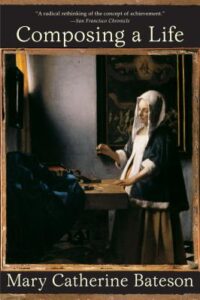
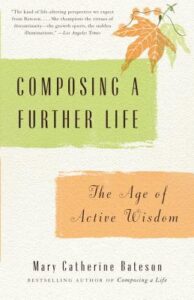
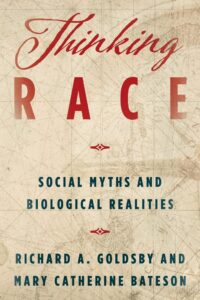



![Cover of Lullaby For My Favorite Insomniac [Digital Version]](https://images-na.ssl-images-amazon.com/images/I/51pT3-VZ%2BmL.jpg)


